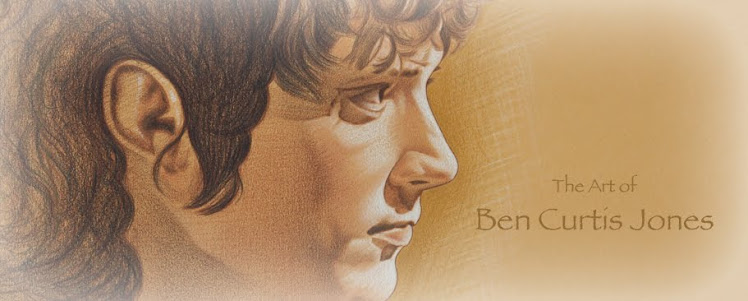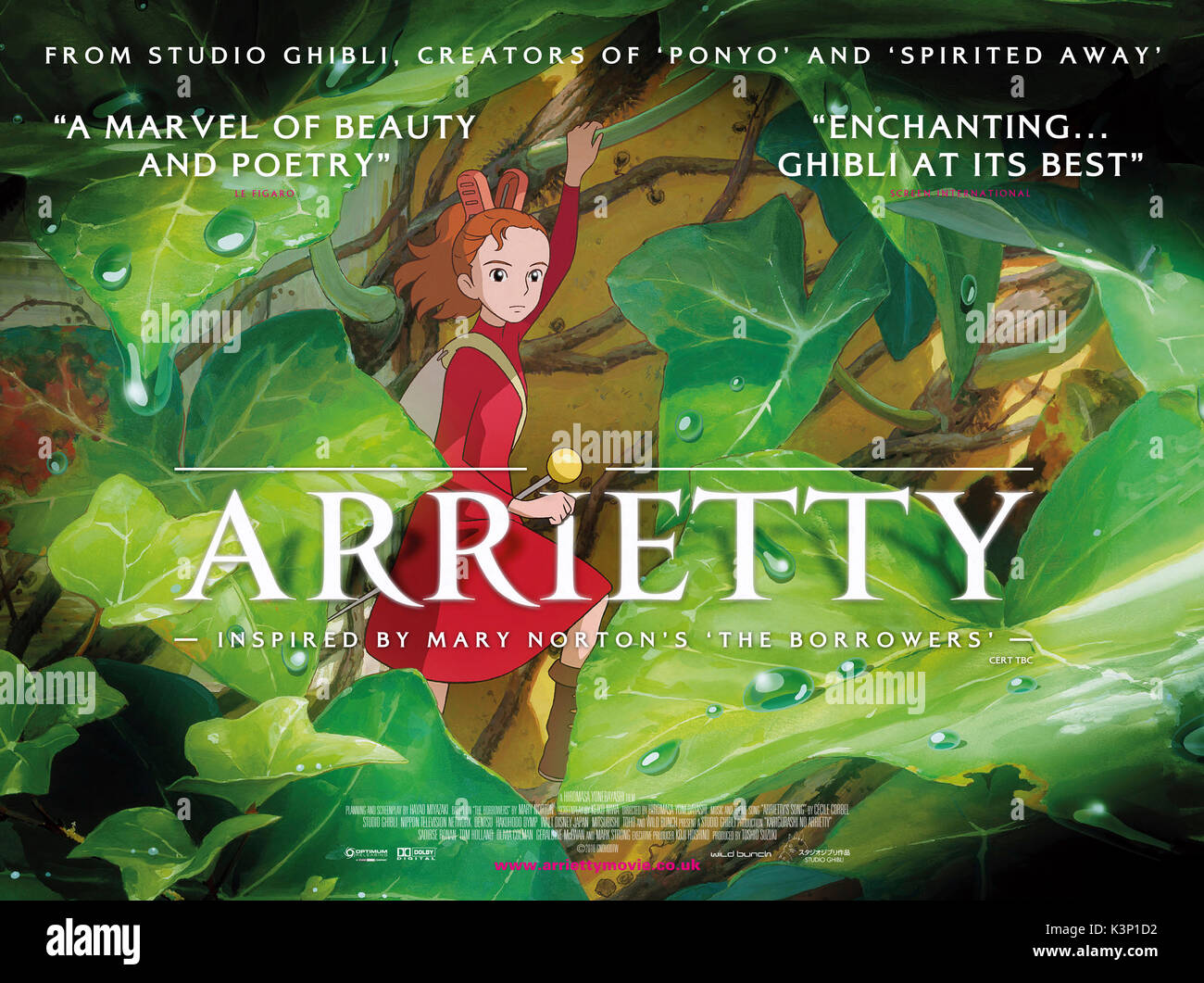

Really, I must admit that there were many moments that amused me, such as Arrietty's various escapades with the house's cat and her scenes with her easily-flustered parents.

Sho (renamed "Shawn" in the English version), Arrietty, and her parents are what you'd expect to see from Ghibli's hands, the sort of people you wouldn't mind having over for tea and who might make life a little more pleasant if you happened to run into them while walking, and Arrietty herself is basically a lovable hellion in miniature, dangerously wandering through the back gardens of Sho's house and taking delight in converting clothespin into rapier and engaging in the first "borrowing" of her life. What is most disappointing about The Secret World of Arrietty is that the characters, by and large, give the film a great deal of its joy, and it is thus a shame that the film fails to fully make use of them. Arrietty is enjoyable to watch and enticing to look at, and yet the magic is simply not there, the entirety never quite gelling together and ultimately being somewhat unsatisfying. In The Secret World of Arriety, that narrative strength is largely absent, with the film lying uncomfortably between plotless meandering and overwrought drama, a likable cast of characters never being given the space to develop proper relationships with one another, and several illogical developments managing to make the film's heavier elements more amusing and melodramatic than affecting. And yet, we deal with Studio Ghibli here, the animation company that has perhaps spoiled us anime reviewers more than any other, and as beautifully animated and drawn as their movies have been, they have also simultaneously managed to delight with some morally complex and continuously fascinating story such as that seen in Princess Mononoke, the sights of the animators' ever beautiful trees, flowers, and wild animals complemented by the directors' remarkable storytelling ability. The Secret World of Arrietty, the first Studio Ghibli film to be directed by Hiromasa Yonebayashi, is certainly an attractive-looking film, and I can't deny that I was pleased with many of its small achievements. Unfortunately, there are times when even the best of us artists perform a bit lazily. Arrietty and Sho work together to try and protect the Borrowers' way of life. As Sho and Arrietty's relationship develops, human interference endangers the Borrowers' lives. However, Arrietty and Sho meet, breaking the rule that humans must not know about the Borrowers' existence.

A 14-year-old Borrower named Arrietty strives to prove herself by helping her father gather materials that her family needs from Sho's new home. Sho moves into his great aunt's house and soon discovers the presence of tiny people, the Borrowers, living there. The film was originally released to Japanese Theaters in July 2010 Notes: Based on the book by Mary Norton, with a screenplay adapted by Hayao Miyazaki and directed by Hiromasa Yonebayashi. AKA: 借りぐらしのアリエッティ (Japanese), Kari-gurashi no Arietty (Japanese), The Borrower Arrietty (Literal English Translation)ĭistributor: Currently licensed by GKids.Ĭontent Rating: 3+ (Nothing Objectionable)Īlso Recommended: Ponyo, Hotarubi no Mori e, My Neighbor Totoro, Whisper of the Heart, On A Stormy Night, Kiki's Delivery Service


 0 kommentar(er)
0 kommentar(er)
